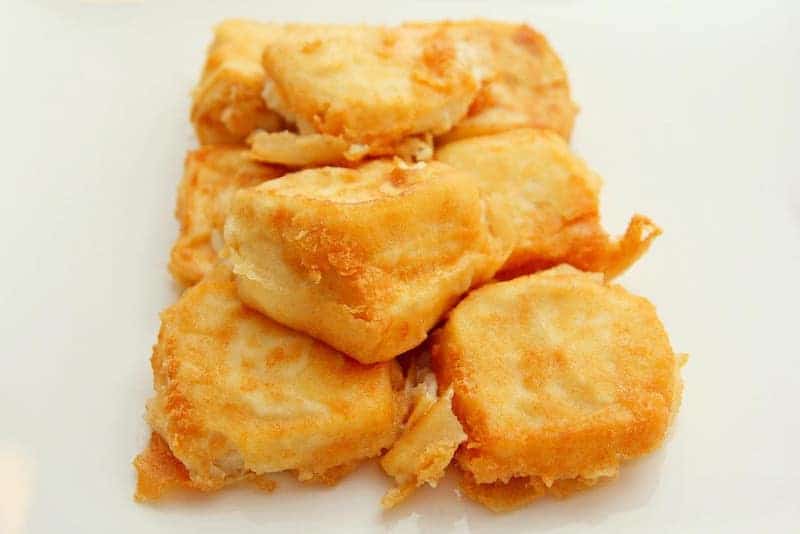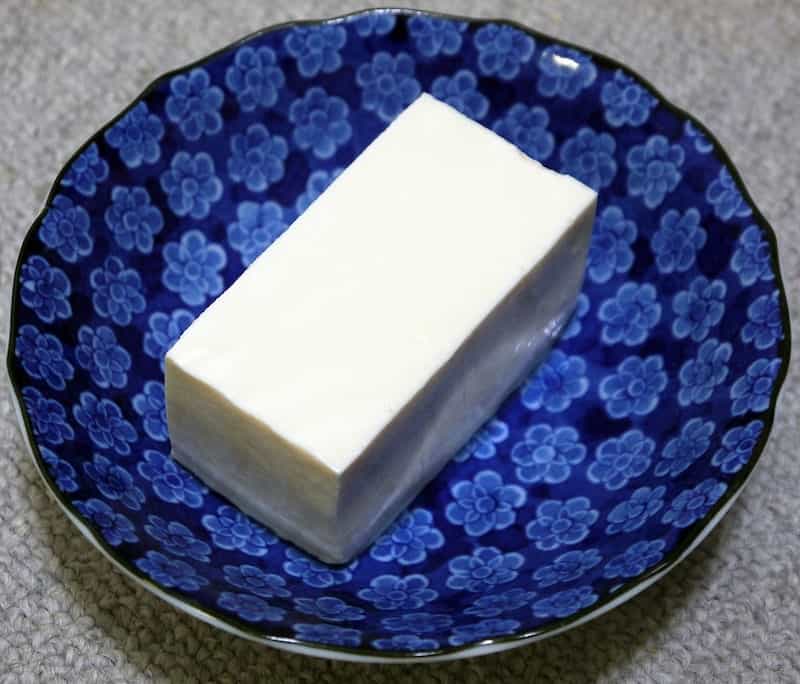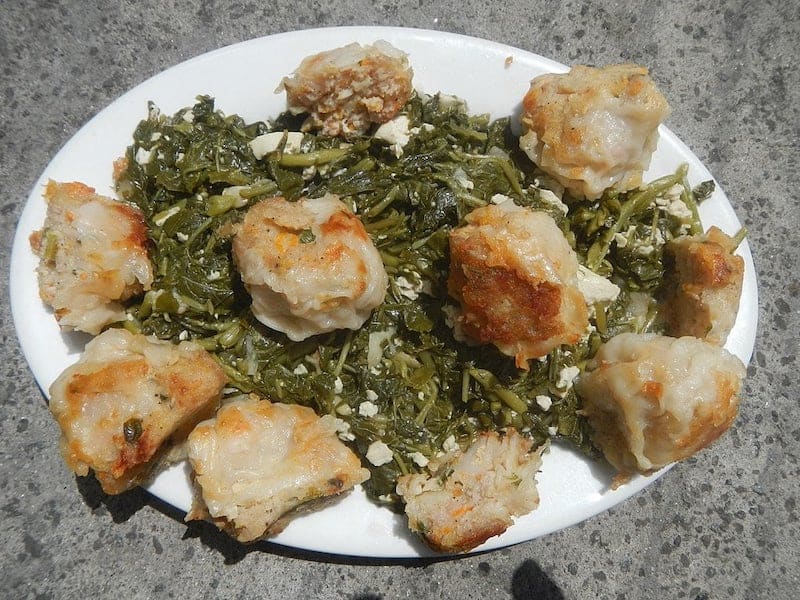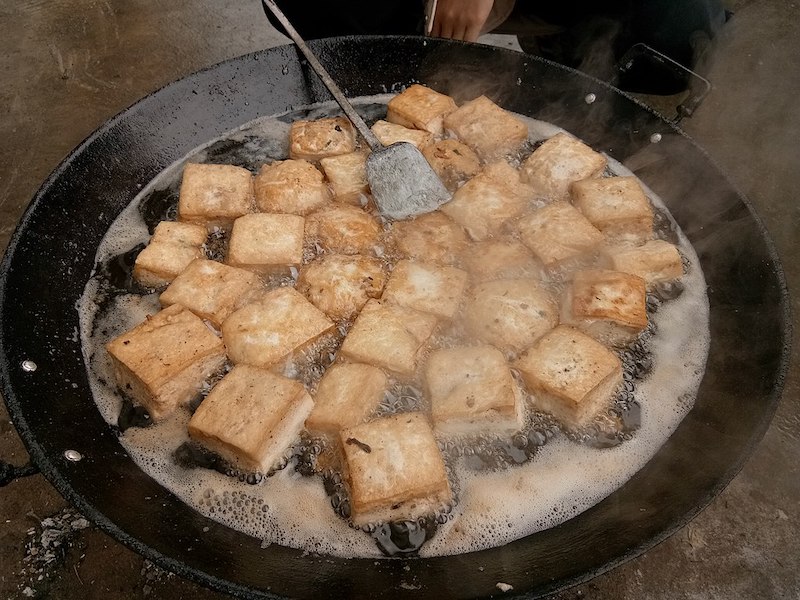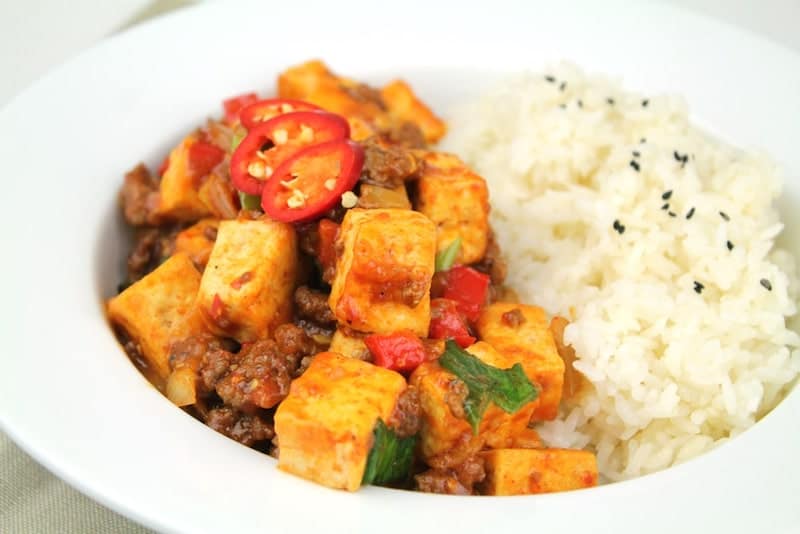Tofu vs. Tokwa (Similarities and Differences Explained)
People who appreciate plant-based high protein foods are probably already familiar with tofu, one of the most widely available vegan protein foods.
But lately you may have seen tokwa in your favorite stores and recipes, and may be wondering what are the similarities and differences between tofu vs. tokwa.
Can tofu and tokwa be used in the same way, and which one should you choose for your favorite foods? Read on to find out more.
| Tofu | Tokwa | |
|---|---|---|
| Definition | A soft food made by coagulating soy milk and then pressing the resulting curds. | Often refers to fried tofu in the Filipino context, but can also be synonymous with plain tofu. |
| Origin | China | Introduced in the Philippines through Chinese influence. |
| Texture | Comes in a range of textures from silken (soft) to firm and extra-firm. | Typically firm to extra-firm because it's better suited for frying. |
| Usage | Versatile; can be used in soups, stir-fries, desserts, and more. | Commonly fried and served with a vinegar-based dip in the Philippines, or included in dishes like "adobo" and "sinigang." |
| Nutrition | Rich in protein, iron, and calcium. Low in calories and fat. | Similar to tofu, but frying can increase its fat and caloric content. |
| Shelf Life | Fresh tofu should be consumed within a week. Store in water and change the water daily. | Fried tokwa should be consumed within a day or two to maintain its best texture and flavor. |
| Culinary Use | Eaten raw, boiled, fried, steamed, or used in a variety of dishes. | Primarily fried, but can also be used in other Filipino dishes. |
What Is Tofu?
Tofu is a soybean food that dates back to the Han Dynasty in China, over 2,000 years ago.
The name “tofu” is a Japanese pronunciation of Chinese “doufu”.
Tofu is essentially a cheese made from soy milk.
It’s often compared to similar foods such as tokwa, bean curd, paneer, and Quorn.
Soy beans are soaked, ground, cooked, and filtered to make a milky liquid.
The soy milk is then coagulated into curds, and the curds are pressed into the familiar brick shape.
Tofu has a mild flavor that easily absorbs the flavors of spices, sauces, and marinades, making it a very versatile ingredient.
Tofu comes in various degrees of firmness, from very soft silken tofu, to extra firm tofu.
Many people prefer extra firm tofu as a plant-based protein in recipes, because the firmer texture gives it a chewy, satisfying mouthfeel.
What Is Tokwa?
Tokwa is the Filipino name for tofu.
Like tofu, tokwa is made of soy milk that has been coagulated into a cheese-like form.
Tokwa is an essential ingredient in a wide range of traditional foods in the Philippines, and appears in many regional recipes and dishes.
Tokwa usually looks slightly different from tofu when it’s purchased at the store.
Instead of a rectangular, brick shape, tokwa is often square in shape.
It has a more noticeable, smooth, pale golden “skin” on the outside.
It has a slightly tangier flavor than tofu, and is denser. Tokwa is usually similar in texture to extra firm tofu.
What Are the Similarities Between Tofu and Tokwa?
Here are the key similarities between tofu and tokwa.
Ingredients and Preparation
Both tofu and tokwa are made from coagulated and compressed soy milk, formed into a brick shape.
Uses and Recipes
Tokwa can be cooked in the exact same way and used interchangeably with extra firm tofu.
Both tofu and tokwa will absorb the flavors of spices and marinades, and are versatile, easy-to-prepare foods.
Nutrition
Both tofu and tokwa are high protein, low fat, plant-based foods.
What Are the Differences Between Tofu and Tokwa?
Here are the key differences between tofu and tokwa:
Firmness
While tofu is available in a wide range of firmness and texture, tokwa is usually only prepared and pressed in one way, to an extra-firm consistency.
Flavor
Tokwa has a slightly more pronounced, tangy flavor than tofu.
Its firmness also means that it is slightly less porous, and thus less flavor-absorbent than tofu.
Exterior Skin
Tokwa usually has a slightly thicker, more visible “skin” on the outside than tofu has.
Summary Table: Tofu vs. Tokwa
| Tofu | Tokwa | |
| Made from Coagulated Soy Milk | Yes | Yes |
| High-protein, Nutritious, Plant-based foods | Yes | Yes |
| Mild Flavor | Yes | Yes |
| Absorbs Flavors from Other Ingredients | Yes | Yes |
| Firm Texture that Withstands Stir-frying | Only firm varieties | Yes |
| Thicker Skin | No | Yes |
In Summary
For people who prefer firm, extra firm, or super firm tofu, tokwa is an excellent substitute.
It’s already firmer and dryer than most forms of tofu, so it cooks quickly and has a satisfying texture, especially with the thicker external skin.
Both firm varieties of tofu and tokwa are denser, so they are less flavor-absorbing than softer types of tofu.
They benefit from longer marinades and stronger seasoning.
Essentially, tokwa is simply the Filipino name for tofu, and it’s prepared in the Philippines in much the same way that tofu is traditionally prepared.
You can easily substitute tokwa for tofu in stir-fry and other recipes that require extra-firm tofu.
However, if you’re making soup, tofu might be a better option.
Or, if tokwa is harder to find in your local market, you can still enjoy a huge range of traditional foods from the Philippines by simply substituting extra firm tofu for tokwa.
Both foods are nutritious, delicious, and incredibly versatile.

